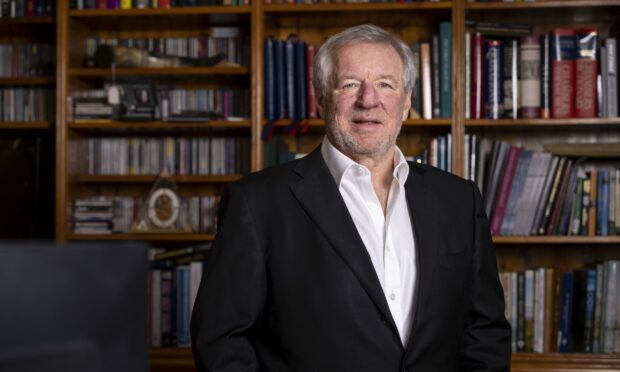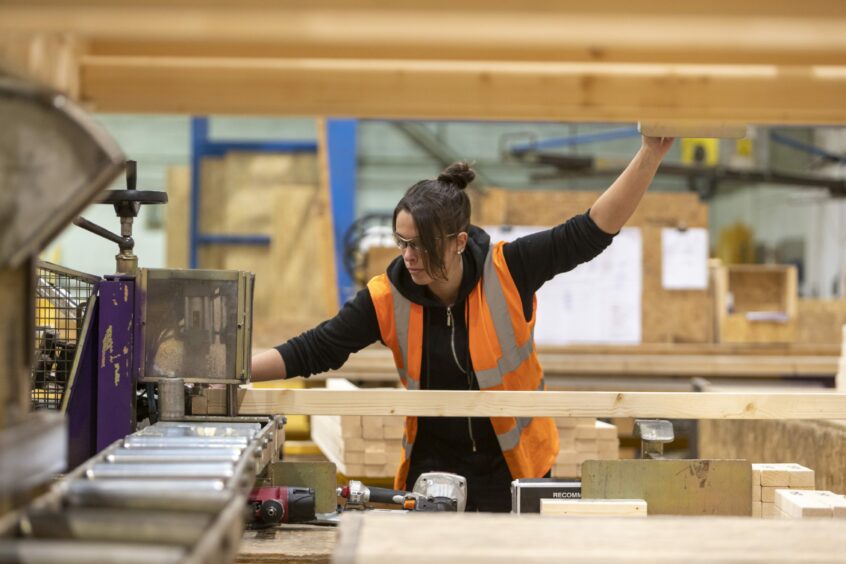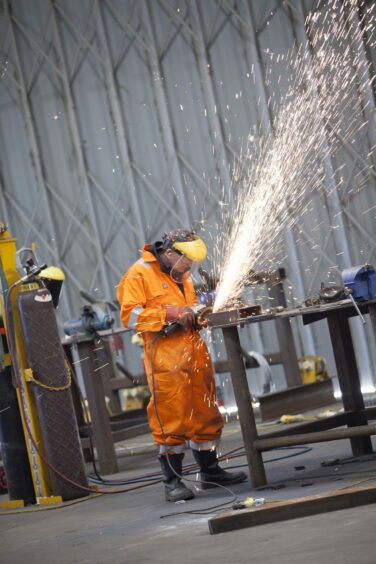With the Covid pandemic gradually running down, though still making its presence felt, business indicators are all over the place.
Scottish businesses are now facing, in addition to supply chain problems and recruitment issues, the prospect of serious rises in energy costs.
According to a report by Addleshaw Goddard, in partnership with the Fraser of Allander Institute, only 7% of Scottish firms expect strong growth this year.
One in five (20%) expect to reduce operations due to increased energy prices.
‘Business sentiment remains positive’
More than half of Scottish businesses have supply chain issues and in excess of 80% are struggling to recruit essential staff.
But the report also showed business sentiment remains positive.
Companies in all sectors reported positive net balances for business volume in Q1-Q3 of last year and all core indicators, barring export activity, consistently optimistic throughout 2021.
Addleshaw Goddard is also a leading advisor on mergers and acquisitions (M&A), having participated in 34 deals last year.
M&A activity is the canary in the coal-mine – if mergers and acquisitions are flourishing, the economy is improving.
The good news is that, according to the latest Experian UK and Republic of Ireland M&A Review, the volume of M&A in Scotland rose by 38% last year.
The volume of Scottish deals increased to 388, from 281 in 2020, with values soaring to £16.4 billion, from £4.9bn previously.
This included six mega deals – there were none the previous year- amounting to £10.6bn.
‘Scotland accounted for 5.1% of all UK deal values’
Small, mid-market and large cap deals all rose by an average of 33%.
Scotland accounted for 5.1% of all UK deal values and 5.6% of volumes.
Those figures are reliable indicators of a resilient economy.
Post-lockdown shake-out has seen firms adjusting to a new business ecosystem and merging with enterprises that are a good fit.
It’s how efficient entrepreneurs operate in challenging circumstances, streamlining their businesses to enable continuing wealth creation.
Energy sector a ‘fertile field’ for M&A activity.
In the north-east, this encouraging trend is much in evidence.
Anderson Anderson & Brown (AAB), the Aberdeen-based accountancy and business services group, has reported 2021 was a record year for mergers and acquisitions.
The firm was engaged in more than 50 completed transactions worth in excess of £750 million.
These included sixth-generation family business James Donaldson & Sons’ acquisition of north-east firms Stewart Milne Timber Systems and Kitchens International.
Meanwhile, AAB’s transactions in the energy sector included Waldorf Energy’s acquisition of Cairn Energy’s interests in the Catcher and Kraken fields in the North Sea.
The energy sector is a fertile field for M&A activity.
Already this year deals have been made in this area, with rental and services supplier Centurion Group, headquartered in Dyce, Aberdeen, acquiring Kintore-based subsea firm Aleron.
Last month Granite City-based PD&MS Group acquired engineering consultancy Optimus (Aberdeen) out of administration, saving 50 jobs, with the expectation of creating a further 50.
And Aberdeen energy firm Parkmead Group recently acquired Peterhead-based Kempstone Hill Wind Energy’s onshore wind farm, near Stonehaven, with the capacity to supply 1,000 homes, for £3.3m.
It looks like another year of proactive M&A activity is under way, notably in the energy sector.
But it’s important investment in the sector is not discouraged by a misguided notion that oil and gas are outdated resources.
The sector has a huge role to play in a just transition to net-zero and oil and gas will be needed as a complementary energy source for years to come.
Meantime, M&A activity in this sector, as in many others, will help streamline the industry to face future challenges.
M&A rules ‘don’t change’
I’ve been involved in a lot of M&A deals – more than 60 – and the basic rules don’t change: Never pay more for an acquisition than it’s worth; do your homework so you have detailed knowledge of the target company; execute a merger in a disciplined way to win the confidence of vendors; and then promptly integrate the acquisition to create a new entity that generates its own culture.
In such exercises people are key. Stakeholders at every level of the acquisition should be made to feel valued.
Well executed M&A activity requires not only business acumen but emotional intelligence.
All the signs are that the north-east is set for a thriving period of M&A initiatives which can only improve and grow our economy.
Martin Gilbert is co-founder and former chief executive of Aberdeen Asset Management.



